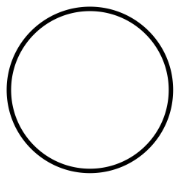Leaderboard
Popular Content
Showing content with the highest reputation on 05/26/2020 in all areas
-
It seems we have injected quite a few pregnant terms in this discussion, namely modernism, postmodernism, contemporary, and avant-garde. It also seems we each have slightly different definitions. For me: Modernism is a broadly-encompassing idealogy that developed in the late 1800s and lasted for about a century, characterized by its reliance on reason and logic to expose truth. Postmodernism is a broadly-encompassing idealogy that developed in the late 20th century. It is a reaction to modernism: that is, it seeks to establish that there is no such thing as absolute truth. Everything is relative. Contemporary music merely means music that is created by artists living today. Avant garde music is that which largely departs from the established norms of traditional music. (You know it when you hear it.)2 points
-
I love it! Yes, I'm a native speaker of English but I've found the North Germanic languages to be much easier to learn than Dutch or German, which are supposed to be more closely related to modern English. I think this has mostly do with, as you said, the grammar similarities between English and the North Germanic tongues. In Dutch and German, for example, I have to remember to keep the verb until the end of the sentence, or not end a sentence with a preposition, or to not split up the infinitive (like I just did), but none of this is so in Icelandic or Norwegian (the two Scandy languages I've studied). Even more interesting to me is that Icelandic also retained the dental fricatives ð and þ (English 'th' sounds) while our "close" West Germanic cousins Dutch and German did not. Some linguists have gone so far as to say modern English is actually a North Germanic language rather than West: https://partner.sciencenorway.no/forskningno-history-language/english-is-a-scandinavian-language/1379829 Great aside, thank you. I could talk about languages all day, but I should probably not clutter up this thread any more than it already is.1 point
-
Again though, there is just nothing about this which is fundamentally different from modernism. Also, what you describe in the bolded part is again "conceptualism" So then why should "art" made by humans that can also be made by monkeys (who cannot have ideas on art) be seen as having any value? Does that not indicate that the person would also be absent-minded? Beauty is often born out of high-concept, but concept alone is not beautiful, though. To quote Aristotle: "Excellence is never an accident. It is always the result of high-intention, sincere effort, and intelligent execution." Well, there are two things about this: First, is that it seems to resemble artspeak. What exactly does it mean if a piece "moves"? What must it "bring about"? How do we know if a work has done this? The second is that, the idea that art should be beautiful and culturally affirmative were the ideas that were prevalent across cultures since the beginning of time. It is only around the 20th Century that, thanks to guys like Greenberg and Kandinsky, that this idea was rejected and art itself was redefined into these more abstract concepts like "to move". To accept that your opinion is the correct one is to accept that the entirety of our previous civilization was invalid.1 point
-
I think you are right. Really great to discuss these topics with you guys. Very respectful, thoughtful and indeed fruitful discussions.1 point
-
I am no expert in philosophy, but it's difficult for me to deny a difference in the idealogies of man of the 2020's and man of the 1920's. It is my understanding that postmodernity began in the 1940s after WWII, and with its insistence that truth is relative, began to inject chance into its artistic expressions, thereby more or less removing the need for an artistic creator in the first place. I would argue that the advent of atonality was itself an expression of postmodern thought, and from it we have a host of other randomizing compositional tools: aleatoric music, indeterminacy, chance music. The standards of beauty were removed, along with the standards of everything else. Really, though, I think we're saying the same things, just calling them by different names. Whether postmodernism is or is not separate from modernism is irrelevant. What's important is that the school of thought promoting the relativity of everything permeated the arts, too. This is what defined the classical music of the mid-to-late 20th century: an anything-goes philosophy that dares anyone to apply the standards of beauty to its artwork. The fact that so many people do not appreciate such art really calls into question whether "postmodernism" is a new era or simply a short-term reaction to reasonism. But that's a discussion for another time. 🙂 (BTW I am not assigning any moral value to modern/postmodern expression. It simply is what it is.)1 point
-
I am also curious about that. The new generation already started looking back further than the 20th century. Especially to Renaissance and medieval trends. What is dangerous and I believe we should be cautious of is that we fall into neo genres. I prefer something new than having a previous particular style as a fundament like neoclassicism. Yes, nice things happen there, but sometimes in this case the stress on characteristics of the fundamental style, classicism, seems somewhat forced and unnatural to me.1 point
-
@Tónskáld, I've been pretty hesitant on participating/reacting to/modding this thread, so thank you for attempting to define common terms. Socrates and Plato would be proud.1 point
-
I will say that I am hopeful that there are more creative, innovative, original works of art in all mediums yet to be created that will deeply touch large amounts of people, make them reflect, and cause them to think in new ways. In fact, I expect this to be the case. Given the entire course of human history to date, it would be shocking if anything else were to happen -- if, suddenly in our day and age, all of humanity were to cease making works of artistic value. That said, I think the mediums of expression in art music will shift / are shifting from the forms we've come to accept as standard. You might find more artistic value in a contemporary musical than in a contemporary opera, for instance. Or you might find more musical value in a rock album than in a contemporary symphony or concerto --who knows? However, I do think that people who've become attached to the established forms of the past will find these changes more difficult to accept. This whole process is normal, though, over the course of time. Common forms / modes of expression fade away in the wake of new forms, over the protestations of those who'd prefer to keep using the old forms. I intended that to be short but it seems it got rather long 😄1 point
-
Hello to everyone, this is one of my latest 2020 piano compositions. It is a piano sonata in Am, the first movement. I hope you enjoy my composition and if you want to ask for anything or say your impressions just leave a comment! Thank you very much! 🙂 ^_^1 point
-
Thank you again for your reply Hendrik Meniere!! I understand clearly what you mean about developing the ideas of the piece further. I will take a second look to my scores and I will develop the ideas as much as it needs to be in its finest way. It was a creation of mine plus the rules of the harmony theory of music the dark chord progression in the middle of the piece. I am glad that you liked it this progression and I am also glad to share these music notations with you. The only unlucky thing is that my scores are not ready in e-form pdf so it will take some time to finish all of them. But as soon as I finish them I will upload them here as a reply. Thank you very much, I really appreciate you and your advices. You have to know that giving good and right advices help people to improve their work more and more and that worked now for me. Thank you again and I will do my best to upload the PDFs scores of the whole sonata as well as the other 2 movements III , IV. Have a nice day Hendrik!1 point
-
1 point
-
Again, I find it really good but as well there is a lot of space for developing the ideas (and personally I think is a good thing). In the middle there is a strange dark chord progression (1:32) that I do not dislike it, the other way around I find that it contributes well to the character of the piece. If you could provide the score it would be easier for other people to give feedback (as most people in this forum prefere reviewing pieces wich provide a score) . In general a very beautiful piece.1 point
-
Just an aside: A lot of people miss the point about Cage's 4'33". To me Cage was foremost a philosopher. What he wanted to show was that there's no such thing as silence. 4'33" does just that. His "Indeterminacy - New Aspects of Form in Instrumental and Electronic Music" could be brought into question alongside. What is it? 90 stories? Or a demonstration of indeterminacy in music? On first encountering these I was looking in parallel at Mallarmé's later work, Le Livre and Un Coup de Des so I was at the stage of just listening, reading, watching. We have to give these people the credit for being experimenters in the middle of that fashionable era. Hardly different from big band jazz fans facing those amazing works by Graettinger - This Modern World and The City of Glass - performed by Stan Kenton. Many such experiments just led up blind alleys. (I feel this about Webern.) Some persisted. Your second paragraph highlights the problems with live performance of avant garde works (to distinguish from post-whatever). Do composers know what they've composed? Do performance errors matter if they can't be noticed by an audience member not 100% familiar with the score? It marks the fact that the only reliable repeat performance can be via a recording. During such education as I had, I attended try-outs of student composers' works. Too often the conductor would play the piece then ask how the composer felt. Often the composer would say that it sounded fine, only to be picked to pieces by the conductor about missing or wrong entries, flawed timing, wrong notes and whatever, suggesting the composer didn't know their own work. They'd obviously spattered symbols on paper without any thought of what it musically meant. However, would that matter to an audience of those aficionados of this music. It would seem that the prime demand of a listener is to listen, not to expect or anticipate. Hence the issue that it communicates nothing other than the phenomenon itself: sound, sight. It hasn't the propensity to develop mood or emotion which the bulk of listeners seek out in music, i.e something at least metaphorically related to language and semiotics. .1 point
-
It is beautiful but I think it could be further developed. 😊1 point
-
In the end, you have to have an audience. Though my exposure to modern music is admittedly low, I did study music composition at the university level and was generally discouraged by the seeming attitude of modern composers (at least whom I was exposed to) where their style was more as a deliberate attempt to be iconoclastic rather than pushing music to evolve in a more natural way. To me, no one personifies this more than John Cage. When you're considered a great composer and your most famous work is 4'33" of silence, there is something seriously wrong. As another example, during my time in college, a pianist friend of mine was asked to premiere a new work for four hands by the composer in residence at the time. The work was for "prepared piano" so it involved various coins and other objects in the piano and the piece itself was virtually unplayable as written so she and her partner didn't really practice it much at all. They were understandably nervous when then the performance came and they completely mauled it to their admission. So when the composer came up to them after the performance, they were bracing themselves for being chewed out. Instead he commended them for a wonderful performance that was even better than he could have hoped and asked if they would be willing to premiere another piece in progress which they politely declined.1 point
-
You are right, I see this trend everywhere in the conservatories I have been, Birmingham, London, Amsterdam, Rotterdam, The Hague. The new millenial generation realises that they lost the audience because of avant-gardism. In our theory class we were called post-modern relativists by Cornelis de Bondt, a colleague of Louis Andriessen. The students of these days are feeling and thinking really different about contemporary music than the teachers. Post-modern relativists was meant as a friendly, joking attack to the students, but we adapted the term as a nickname.1 point
-
The goal of all modernism is to destroy European culture by redefining it as something nonsensical. Well, they intend that for everyone, but they especially hate European culture. There is actually no such thing as "post" modernism. That was just a term invented in the 60s to make it look like their was some actual development to modernism, instead of stagnation. What most people alive today do not realize, is that this "modern art" stuff is over a century old, and is basically the same as it ever was. These profiteering middle-men showed up in the late 1800s and early 1900s and sought to replace local traditions with mass-produced goods and free trade. Nationalism, the existence of different peoples and cultures with their own identities, and objective quality differences between and within them is bad for international business because nations will be self-reliant and attached to their own output instead of yours. High quality standards mean that the thing takes time to learn to even make in the first place. "Modern" anything is easy to make a lot of quickly, and does not appear to have been made by any people in particular. The fact that everywhere has its own unique, local, home-cooked cuisine is bad for McDonald's; the fact that Iran, Germany and Norway all have their own traditional clothing made by locals and passed down through the family means it's difficult for Adidas and Nike to make sales...unless they can tear out those peoples' roots. This permeates every aspect of society now, to the point that major cities in the world are no longer easily-distinguishable from each other. Ideally, they want people to be indistinguishable from each other entirely, so that no one will have any loyalty to anything — because there's nothing unique among them — but consumer products. The modernists have made it so that "fascism", "sexism", "racism", and the other -isms and -ists are understood to be the worst labels that can possibly be applied to anyone (even though our ancestors never seemed to cross-examine themselves in this fashion) and so they can use it to browbeat anyone who expresses and interest in upholding the high-standards and uniqueness of our past cultures so as to dissuade people from rejecting their modernist, mass-produced junk. You will notice that most "Individuality" today is totally determined by loyalty to certain brands. Do you ever notice how all of these hardcore YouTube "individualists" rooms they film in are adorned with action figures, movie posters, video games, plastic figurines and they're always wearing a t-shirt emblazoned with some corporate logo? Perhaps a metal band logo or Captain America shield? The weakest people of society eat all this stuff up because it is sold to them as "equality"; which doesn't exist in nature. If we accept the obvious truth that Bryullov really was a better painter than Kandinsky, it means that our work may be judged to be inferior to someone else's too. It takes a lot of effort to be good at something, and not everyone has it in them to BE good at a particular thing. So, when you offer to lower standards/the playing field, when you say that some paint thrown at a canvas is "just as good" as Bryullov, or some random notes on a keyboard is just as good as Mozart because of "it's all subjective" solipsism — the least-skilled people in society will eat that up because it offers them a chance to play too in a field they otherwise couldn't compete in. But as we see, the result is ugliness, sameness, and cultural decline.1 point
-
Hello everyone, I am back, this is my second piano piece of microtonal music, hope you like it!1 point
-
I think it would be beneficial if the competition guidelines/rules somehow stretch each contestant without squelching his/her own artistic voice. A scenario would be nice I feel. Maybe something along the lines of trying to convince a patron to support you financially? Your composition could be your 'interview' (I'm reminded here of Bach and the Brandenburg Concertos.) We could give you a bio sketch of the patron—keeping it as musically neutral as possible so that nobody is forced to compose in a particular style—and see how well you cater to the likes/dislikes of that person. Just an idea. Feel free to shoot it down or modify it as you see fit.1 point







